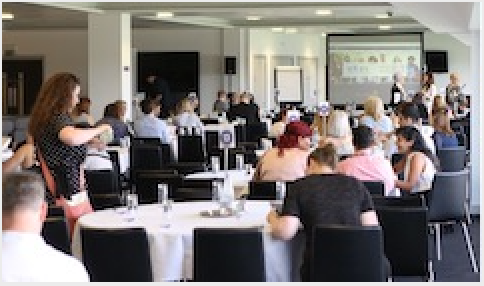Supporting High-Achieving Students After Enrolment: Learning from a Qualitative Evaluation of a High Achievers Recognition Scheme
DOI:
https://doi.org/10.20343/teachlearninqu.10.30Keywords:
high achievement, student success, student support, qualitative, evaluationAbstract
This article presents findings from a small-scale qualitative study of student perceptions of a High Achievers’ Recognition Scheme in a faculty within a UK university. This scheme is unusual in UK higher education in that it provides tailored support and development for students who have been identified as high-achievers. The findings suggest students valued both the recognition and developmental aspects of the scheme and their perceptions of the benefits aligned with the scheme’s aims: enhanced personal and professional development, improved engagement, and raised aspirations. Social and individual factors were perceived to enable high-achievement, whilst some operational factors could hinder engagement with the scheme. The findings are relevant to wider understandings of approaches to support high-achieving students; an area where, currently, there is little published research from the UK. We conclude with reflections on possible ways to build support for high-achieving students through focusing on identity, agency, and community.
References
Baxter Magolda, Marcia B. 2004a. “Preface.” In Learning Partnerships: Theory and Models of Practice to Educate for Self-Authorship, edited by Marcia B. Baxter Magolda and Patricia M. King, xvii–xxvi. Virginia: Stylus Publishing Inc.
Baxter Magolda, Marcia B. 2004b. “Self-Authorship as the Common Goal of 21st-Century Education.” In Learning Partnerships: Theory and Models of Practice to Educate for Self-Authorship, edited by Marcia Baxter Magolda and Patricia M. King: 1–35. Virginia: Stylus Publishing Inc.
Baxter Magolda, Marcia B. 2007. “Self-Authorship: The Foundation for Twenty-First-Century Education.” New Directions for Teaching and Learning 109: 69–83. https://doi.org/10.1002/tl.266.
Brinkel, Nico, Floris van Rees, Margit Ruis, and Florian Sloots. 2015. “Community Building at Honors Programs in Continental Europe.” Honors in Practice 11: 93–109.
Carduner Jessie, Gary M. Padak, and Jamie Reynolds. 2011. “Exploratory Honors Students: Academic Major and Career Decision Making.” NACADA Journal 31(1): Spring https://doi.org/10.12930/0271-9517-31.1.14.
Cohen, Louis, Lawrence Manion, and Keith Morrison. 2011. Research Methods in Education. 7th Edition, Routledge.
Cotton, Debbie R.E., Tricia Nash, and Pauline Kneale. 2017. “Supporting the Retention of Non-Traditional Students in Higher Education Using a Resilience Framework.” European Educational Research Journal 16 (1): 62–79. https://doi.org/10.1177/1474904116652629.
Chickering, Arthur W., and Zelda F. Gamson. 1987. “Seven Principles for Good Practice in Undergraduate Education.” AAHE Bulletin, March: 3–7.
Cooperrider, David L., Diana Whitney, and Jacqueline M. Stavros. 2003. Appreciative Inquiry Handbook: The First in a Series of AI Workbooks for Leaders of Change. USA: Lakeshore Communications Inc and Berrett-Koehler Publishers Inc.
Dickinson, Mary J., and David A.G. Dickinson. 2015. “Practically Perfect in Every Way: Can Reframing Perfectionism for High-Achieving Undergraduates Impact Academic Resilience?” Studies in Higher Education 40 (10): 1889–1903. https://doi.org/10.1080/03075079.2014.912625.
Egan, Helen, Mark O’Hara, Amy Cook, and Michail Mantzios. 2021. “Mindfulness, Self-Compassion, Resiliency and Wellbeing in Higher Education: A Recipe to Increase Academic Performance.” Journal of Further & Higher Education 45 (2). https://doi.org/10.1080/0309877X.2021.1912306.
Fuller, Alison, Sue Heath, and Brenda Johnston. (eds.). 2011. Rethinking Widening Participation in Higher Education: The Role of Social Networks. London: Routledge.
Harrison, Neil. 2018. “Using the Lens of ‘Possible Selves’ to Explore Access to Higher Education: A New Conceptual Model for Practice, Policy and Research.” Social Sciences, 7 (10): 209. https://doi.org/10.3390/socsci7100209.
Henderson, Holly, Jacqueline Stevenson, and Ann-Marie Bathmaker. (Eds). 2018. Possible Selves and Higher Education. London: Routledge.
Johnson, Melissa, Cheryl Walther, and Kelly J. Medley. 2018. “Perceptions of Advisors Who Work with High-Achieving Students.” Journal of the National Collegiate Honors Council 19 (1): 105–24.
Kauser, Sophia, S. Yaqoob, Amy Cook, Mark O’Hara, Michail Mantzios and Helen Egan. 2021. “Learning from the Experiences of Black, Asian and Minority Ethnic (BAME) University Students Who Withdraw from their Undergraduate Degree.” SN Social Sciences 1 (121) https://doi.org/10.1007/s43545-021-00115-8.
Khan, Mohammed Ayub, and Ruben Morales-Menendez. 2012. “Establishing a Latin American University Honors Program: The Case of Campus Monterrey, Tecnológico De Monterrey, Mexico.” Journal of the National Collegiate Honors Council 13 (2): 73–100.
Kitagaki, Ikuo, and Donglin Li. 2012. “On Training Excellent Students in China and the United States.” Journal of the National Collegiate Honors Council 13 (2): 119–28.
Markus, H. and P. Nurius. 1986. “Possible Selves.” American Psychologist, September 1986: 954–69. https://doi.org/10.1037/0003-066X.41.9.954.
O’Mahony, Joan, Liz Thomas and Jonathan Payens (eds.). 2013. Building Inclusivity: Engagement, Community and Belonging in the Classroom – Interviews with Rowena Arshad Vicky Gunn Ann-Marie Houghton and Bob Matthew. York: Higher Education Academy. https://www.advance-he.ac.uk/knowledge-hub/building-inclusivity-engagement-community-and-belonging-classroom.
Schuman, Samuel. 2006. “Beginning in Honors: A Handbook.” NCHC Monographs Series, January. https://digitalcommons.unl.edu/nchcmono/7.
Stevenson, Jacqueline and Sue Clegg. 2011. “Possible Selves: Students Orientating Themselves Towards the Future through Extracurricular Activity.” British Educational Research Journal 37 (2): 231–46. https://doi.org/10.1080/01411920903540672.
Thomas, Liz. 2012. Building Student Engagement and Belonging in Higher Education at a time of Change: Final Report from the What Works? Student Retention & Success Programme. York: Higher Education Academy. https://www.advance-he.ac.uk/knowledge-hub/building-student-engagement-and-belonging-higher-education-time-change-final-report.
Thomas, Liz, Mike Hill, Joan O’Mahony, and Mantz Yorke. 2017. Supporting Student Success: Strategies for Institutional Change from the What Works? Student Retention & Success Programme. Summary Report. York: Higher Education Academy. https://www.advance-he.ac.uk/knowledge-hub/supporting-student-success-strategies-institutional-change.
Tinto, Vincent. 2003. “Learning Better Together: The Impact of Learning Communities on Student Success.” In: Promoting Student Success in College. Higher Education Monograph Series: 1–8. Syracuse University.
Trowler, Vicky and Paul Trowler. 2010. Student Engagement Evidence Summary. York: Higher Education Academy.
University of Surrey. 2012. STARS: Inaugural Report and Operational Guide. University of Surrey.
White Kerensa, Felicity Fletcher-Campbell, and Kate Ridley. 2006. What Works for Gifted and Talented Pupils: A Review of Recent Research. LGA Research, Report 51. National Foundation for Educational Research in England and Wales.
Wolfensberger, Marca, and Maarten Hogenstijn. 2016. “Slow Shift–Developing Provisions for Talented Students in Scandinavian Higher Education.” Education Sciences 6 (3), 31. https://www.mdpi.com/2227-7102/6/3/31.
Yorke, Mantz, and Barnard Longden. 2008. The First-Year Experience of Higher Education in the UK. York: Higher Education Academy. https://www.advance-he.ac.uk/knowledge-hub/first-year-experience-higher-education-uk-final-report.

Downloads
Published
Issue
Section
License
Copyright (c) 2022 Abbi Flint, Juliette Gaunt, Mark O'Hara

This work is licensed under a Creative Commons Attribution-NonCommercial 4.0 International License.


